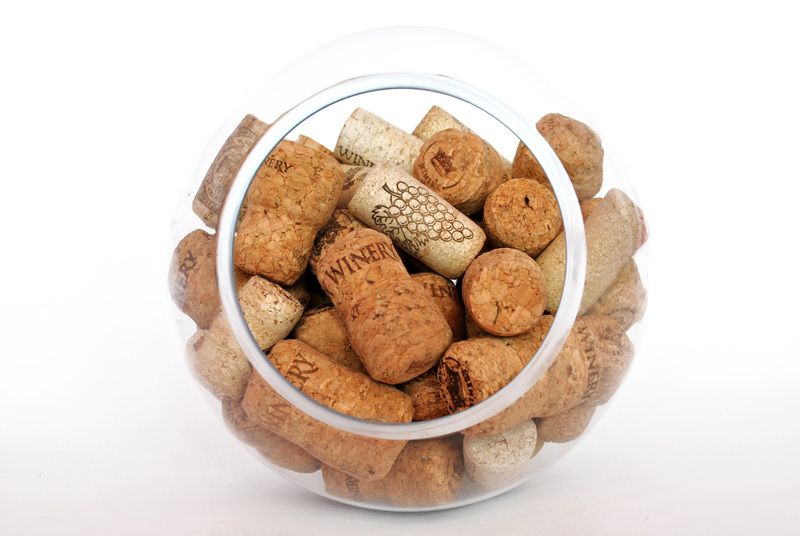Essential Waste Prevention Strategies for Your Household
In today's world, waste prevention is more important than ever. With increasing concerns about our environmental footprint, adopting effective strategies to minimize household waste is crucial. This comprehensive guide will walk you through numerous essential waste prevention strategies for your home, from shopping smarter to composting, helping you create a greener, more sustainable lifestyle.
Why Is Waste Prevention Important?
Before diving into practical waste reduction tips, it's vital to understand why preventing household waste matters. Reducing waste not only conserves natural resources and cuts down landfill usage but also saves money and fosters environmental stewardship. Household waste management strategies can make a significant impact when embraced consistently.
- Conserves resources - Limiting waste means fewer raw materials are used.
- Reduces pollution - Less waste equals less incineration and landfill emissions.
- Saves money - Buying less and wasting less helps your budget.
- Teaches responsibility - Demonstrates sustainable habits for future generations.

Assessing Your Household Waste
To implement waste prevention solutions for your household, first assess your current waste generation. Take stock of what you throw away to identify patterns and priority areas.
Key Steps for Waste Assessment
- Monitor waste for a week: List all discarded items and note their types (food, plastic, paper, etc.).
- Identify recurring items: Which products appear most? Are there avoidable disposables?
- Evaluate alternatives: Research reusable or more durable options for your common waste items.
Top Essential Strategies for Preventing Household Waste
After evaluation, it's time to implement the best waste prevention strategies for your household. Try these proven approaches to significantly reduce what goes in your bin:
1. Buy Less: The Art of Mindful Shopping
One of the most effective waste minimization strategies starts before products even reach your home. Buying less means less packaging, less clutter, and less waste.
- Make a shopping list: Avoid impulse buys that lead to unused items.
- Choose bulk: Opt for groceries and goods in bulk sizes to limit packaging.
- Buy quality over quantity: Durable goods last longer and need fewer replacements.
2. Mind Your Groceries: Food Waste Prevention
Food is a major part of household waste. Reducing food spoilage is both eco-friendly and budget-friendly.
- Plan meals: Before shopping, decide what you'll cook and only buy needed ingredients.
- Practice FIFO (first in, first out): Use older items before fresh ones.
- Store food smartly: Use airtight containers, keep produce fresh and understand how to freeze perishables.
- Get creative with leftovers: Transform them into soups, stir-fries, or snacks.
3. Switch to Reusables
Ditch single-use products in favor of reusable alternatives--one of the most impactful household waste-reduction strategies.
- Reusable shopping bags: Always carry cloth bags or totes.
- Say no to disposables: Replace paper towels, plastic cutlery, and water bottles with reusable versions.
- Rechargeable batteries: Invest in rechargeable options to minimize hazardous waste.
4. Composting: Turn Waste into Resource
Composting is a cornerstone in home waste prevention efforts. It recycles food scraps and yard waste into nutrient-rich soil.
- Set up a compost bin: Designate a spot in your backyard or use a countertop composter.
- Know what's compostable: Fruits, vegetables, eggshells, coffee grounds, and yard trimmings are great compost material.
- Avoid: Meat, dairy, and oily foods, as these can attract pests and slow breakdown.
5. Embrace Repair and Upcycling
Before tossing broken items, see if they can be fixed or creatively repurposed.
- Fix before you toss: Learn basic repairs for clothing, electronics, and toys.
- Upcycle household goods: Turn jars into storage, use old t-shirts as cleaning rags, or transform furniture.
- Community repair cafes: Many communities offer repair events--attend one and learn new skills!
6. Smart Packaging Choices
Packaging is a huge source of waste. Make conscious decisions about packaged products.
- Choose minimal packaging: Go for goods with the least plastic or excess wrapping.
- Opt for recyclables: Select products in glass, metal, or cardboard which are easily recycled.
- Bring your own containers: Use your own jars and containers at bulk stores.
7. Recycle Right
While not strictly prevention, responsible recycling ensures materials return to useful life rather than the landfill.
- Understand local rules: Recycling programs vary--know what's accepted in your area.
- Proper sorting: Rinse containers, flatten boxes, and avoid contamination.
- Don't "wish-cycle": Only recycle items you're sure about to prevent waste stream contamination.
8. Digital Decluttering
Rethink paper use by embracing digital tools:
- Opt for e-billing and statements: Reduce incoming mail and paper waste.
- Use apps for lists and notes: Lessen the need for sticky notes or scrap paper.
Building Everyday Waste Prevention Habits
Adopting waste reduction strategies at home succeeds best with long-term habits and a mindful household culture.
Tip 1: Educate Your Family
Discuss why preventing waste is important. Involve everyone in sorting, recycling, and composting tasks. Make it fun with challenges or games for kids!
Tip 2: Designate Waste Reduction Zones
Create organized spots for recycling, composting, and donations. Clear signage helps establish these areas as part of your home's routine.
Tip 3: Regular Decluttering
Don't let unused items pile up. Donate clothing, toys, or household items as soon as they're no longer needed.
Tip 4: Stay Informed
Read up on new waste prevention tips, attend local workshops, and participate in community clean-ups to stay motivated.
Creative Waste Prevention Solutions
Go beyond the basics with these creative approaches to household waste prevention:
- Host a clothes swap: Exchange gently used clothes and accessories with friends or neighbors.
- Start a tool library: Share tools and appliances rather than purchasing rarely-used items.
- Organize a "zero waste" challenge: Challenge your household to create as little waste as possible for a week.
Common Household Products to Avoid for Waste Prevention
Certain products are notorious for contributing to household garbage. Whenever possible, try to avoid these items:
- Single-use plastics (bags, straws, cutlery, plates)
- Excessively packaged goods
- Disposable cleaning supplies (mop pads, wipes)
- Bottled water and soft drinks
- Fast-fashion clothing
Swap these for reusable, refillable, and long-lasting alternatives to reduce household waste and save money.

Benefits of Household Waste Prevention
- Saves money: Buying wisely and wasting less means your money goes further.
- Protects the environment: Less trash means fewer greenhouse gases and pollution.
- Improves well-being: A decluttered, organized home is less stressful and healthier.
- Builds community: Repairing, sharing, and donating strengthen social ties.
Embracing waste prevention strategies isn't just about being "eco-friendly;" it's an investment in your household's future and the planet's well-being.
Conclusion: Start Your Waste Prevention Journey Today
Reducing waste at home is achievable with commitment and a few lifestyle changes. Implementing these essential waste prevention strategies for your household helps the environment, saves money, and inspires positive habits for the whole family. Every small change counts--start with one new habit this week and work up to bigger shifts. Remember, the journey toward zero waste is a process, not perfection. With conscious choices, you can turn your home into a model of sustainable living.
Ready to make a difference? Try these household waste prevention ideas and join the movement toward a cleaner, greener tomorrow.
```